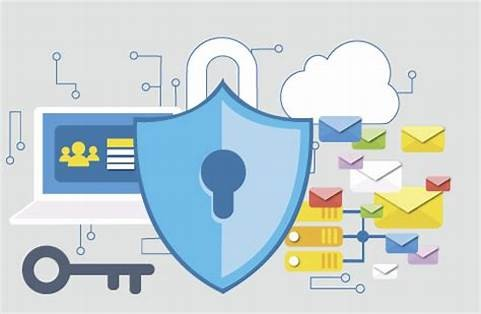Introduction
Website security is a major concern for website owners, businesses, and developers. Cyber threats are increasing daily, and websites are prime targets for hackers. If your website is not secure, you risk losing sensitive data, customer trust, and even your business reputation. But what if there was one simple trick to instantly boost website security?
In this article, we will discuss a powerful yet simple method to enhance your website security. We will also cover additional tips to keep your website safe from cyber threats.
The One Simple Trick: Use HTTPS with an SSL Certificate
If you want to instantly boost website security, the easiest and most effective trick is to use HTTPS with an SSL certificate. This simple change can significantly improve the security of your website and protect your data from hackers.
What is HTTPS?
HTTPS (HyperText Transfer Protocol Secure) is a secure version of HTTP. It encrypts the data transmitted between a user’s browser and the website server. This prevents hackers from intercepting sensitive information such as passwords, credit card details, and personal data.
Why is HTTPS Important for Website Security?
- Data Encryption – HTTPS encrypts the communication between users and websites, ensuring that no unauthorized person can access or steal the data.
- User Trust – Websites with HTTPS show a padlock icon in the address bar, which increases trust among visitors.
- Better SEO Ranking – Google prioritizes HTTPS websites in search results, helping you rank higher.
- Protection Against Attacks – HTTPS prevents man-in-the-middle (MITM) attacks, which occur when hackers intercept data between a user and a website.
- Compliance with Security Standards – Many online regulations require websites to use HTTPS to protect user data.
How to Get an SSL Certificate for Your Website
To enable HTTPS, you need an SSL certificate. Follow these steps:
- Choose an SSL Provider – You can get an SSL certificate from hosting providers like GoDaddy, Namecheap, or Let’s Encrypt (a free option).
- Install the SSL Certificate – Most hosting providers offer easy installation. You can also install it manually through cPanel.
- Update Website Links – Ensure all internal links and images use HTTPS instead of HTTP.
- Redirect HTTP to HTTPS – Set up a 301 redirect to ensure users always access the secure version of your site.
- Test Your HTTPS Connection – Use tools like SSL Labs’ SSL Test to verify your SSL setup and fix any issues.
Additional Tips to Improve Website Security
While HTTPS is a strong first step, you should also follow other best practices to keep your website secure.
1. Use Strong Passwords and Two-Factor Authentication (2FA)
A weak password is one of the easiest ways for hackers to gain access to your website. Use a strong, unique password and enable 2FA for an extra layer of security.
2. Keep Software and Plugins Updated
Outdated software and plugins contain vulnerabilities that hackers can exploit. Regularly update your CMS (like WordPress), plugins, and themes to patch security holes.
3. Install a Web Application Firewall (WAF)
A WAF filters and blocks malicious traffic before it reaches your website. It helps protect against common threats like SQL injection and cross-site scripting (XSS).
4. Backup Your Website Regularly
Regular backups ensure you can restore your website if it gets hacked. Use automated backup tools to save copies of your website daily or weekly.
5. Limit Login Attempts
Brute force attacks happen when hackers try to guess your login credentials. Limit login attempts to prevent multiple failed login attempts from the same IP address.
6. Secure Your Database
Use unique database names and limit database access permissions to prevent unauthorized access. Regularly update your database passwords as well.
7. Scan Your Website for Malware
Use security tools like Sucuri, Wordfence, or SiteLock to scan your website for malware and vulnerabilities. These tools help detect threats before they cause damage.
8. Disable Unnecessary Features
If you are not using certain website features, disable them. For example, if you don’t need file editing in WordPress, disable it to prevent hackers from modifying files.
Conclusion
The simplest and most effective trick to instantly boost website security is to use HTTPS with an SSL certificate. This protects data transmission, builds user trust, and improves your search engine ranking. However, website security doesn’t stop there. Implementing strong passwords, keeping software updated, using firewalls, and performing regular backups further strengthens your website against cyber threats.
By following these best practices, you can protect your website, users, and business from online threats. Make website security a priority today and keep your online presence safe!


